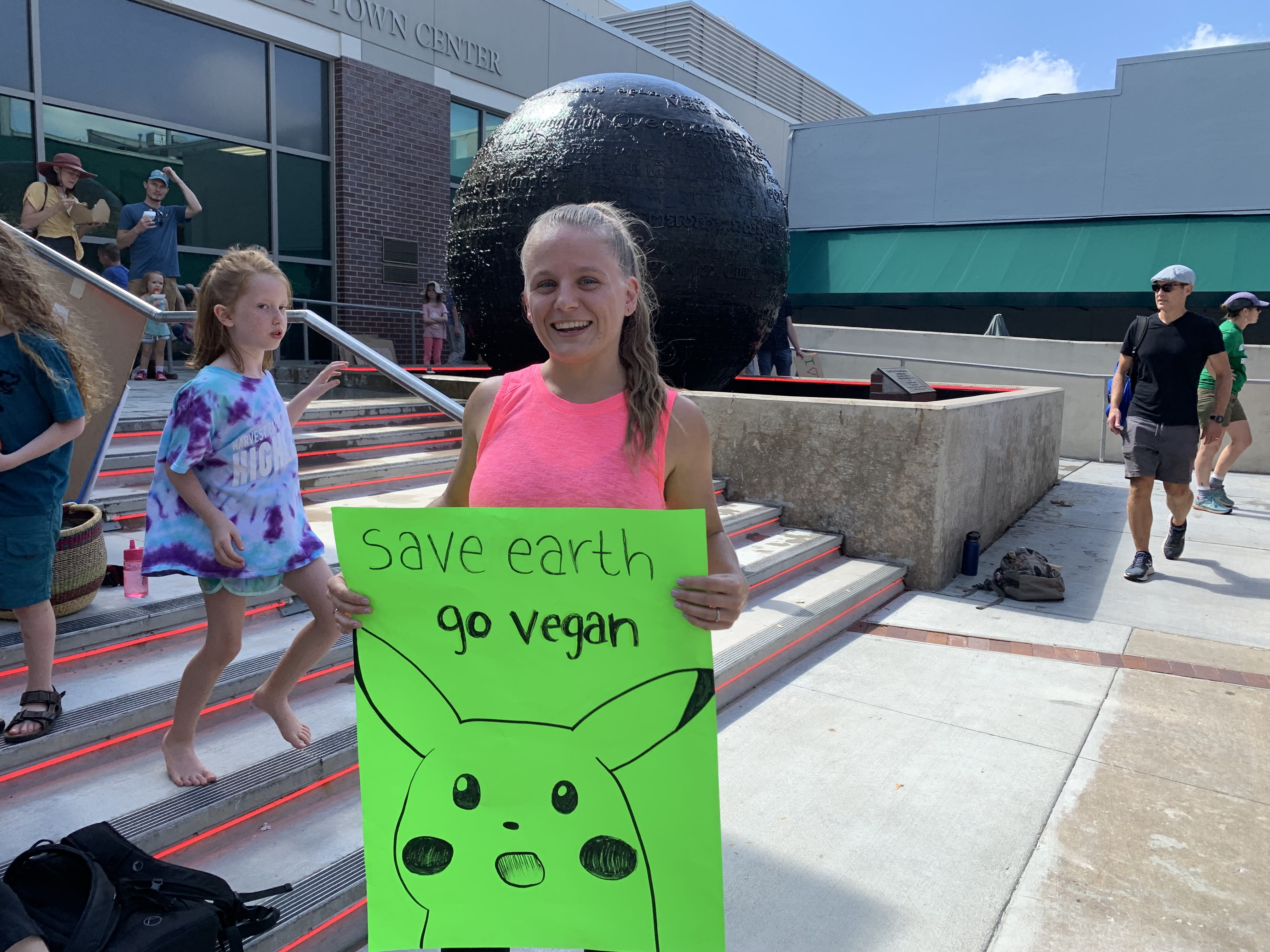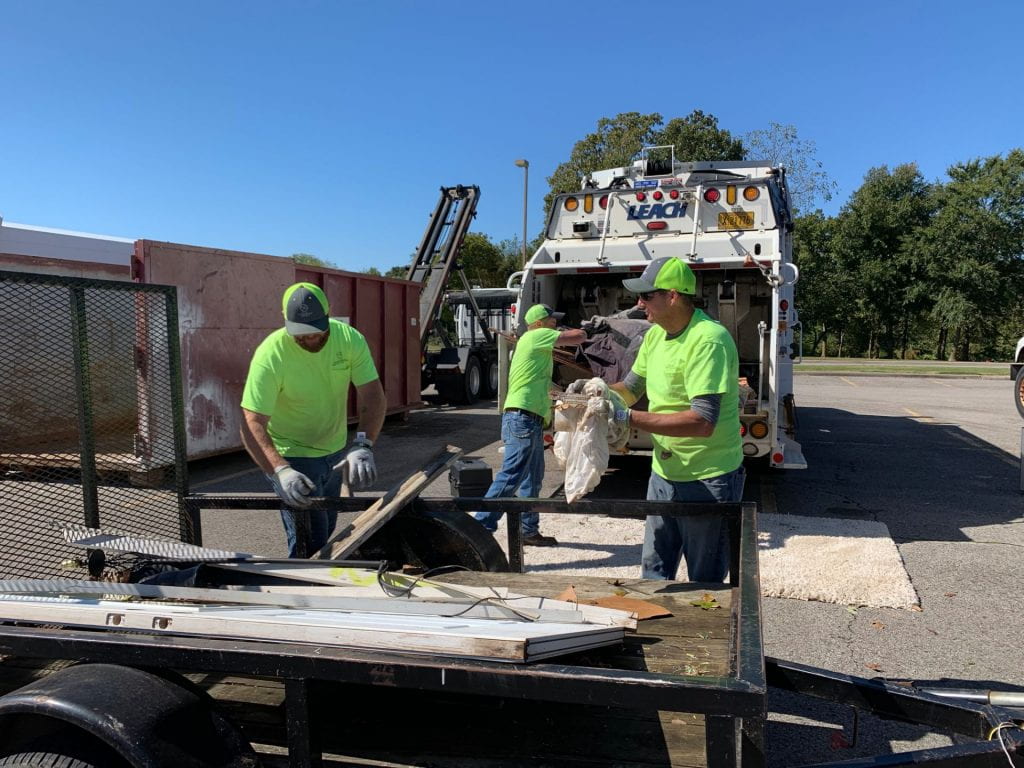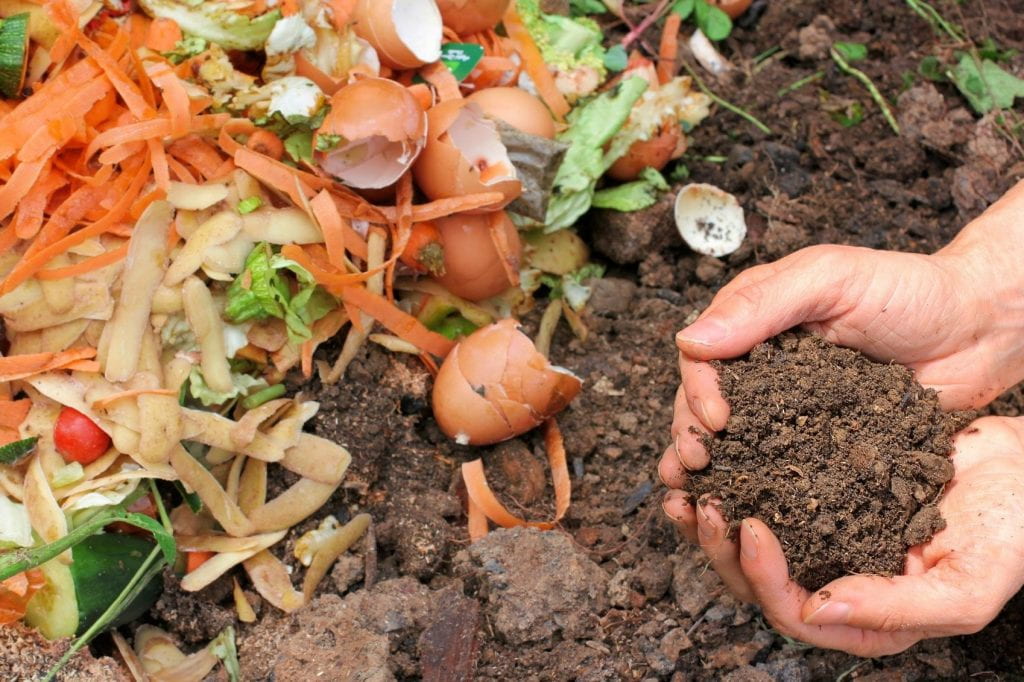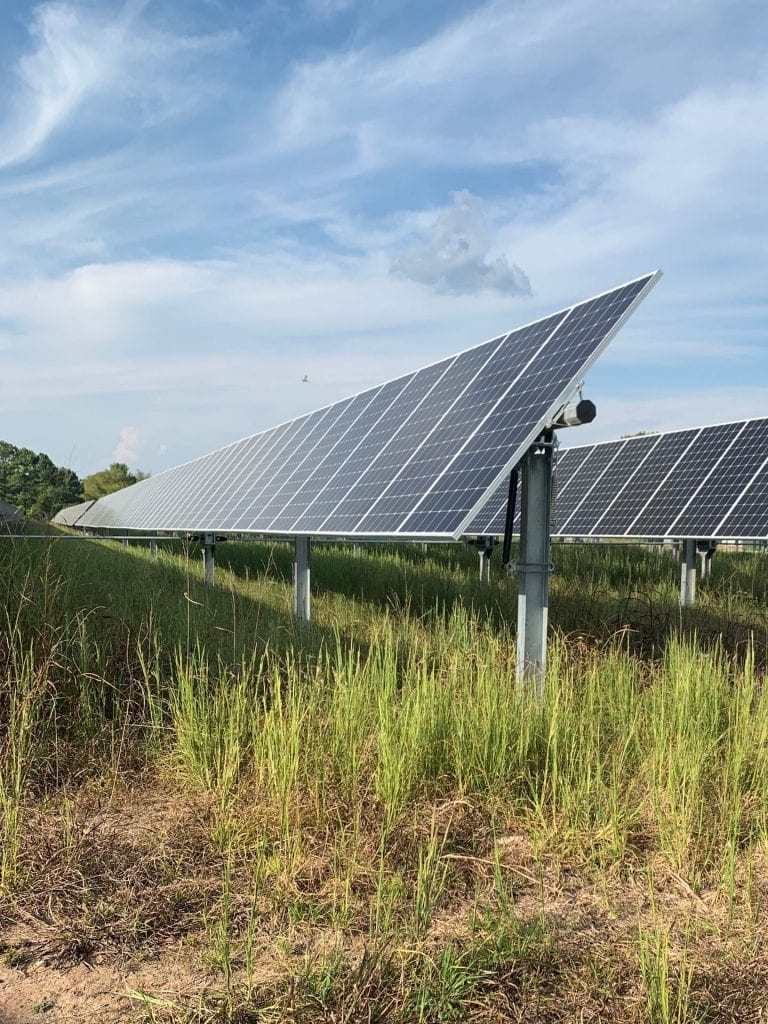NWA Wastes 80,000 Tons of Food A Year; Food Loops Offers Solution
By Abby Zimmardi
The Razorback Reporter
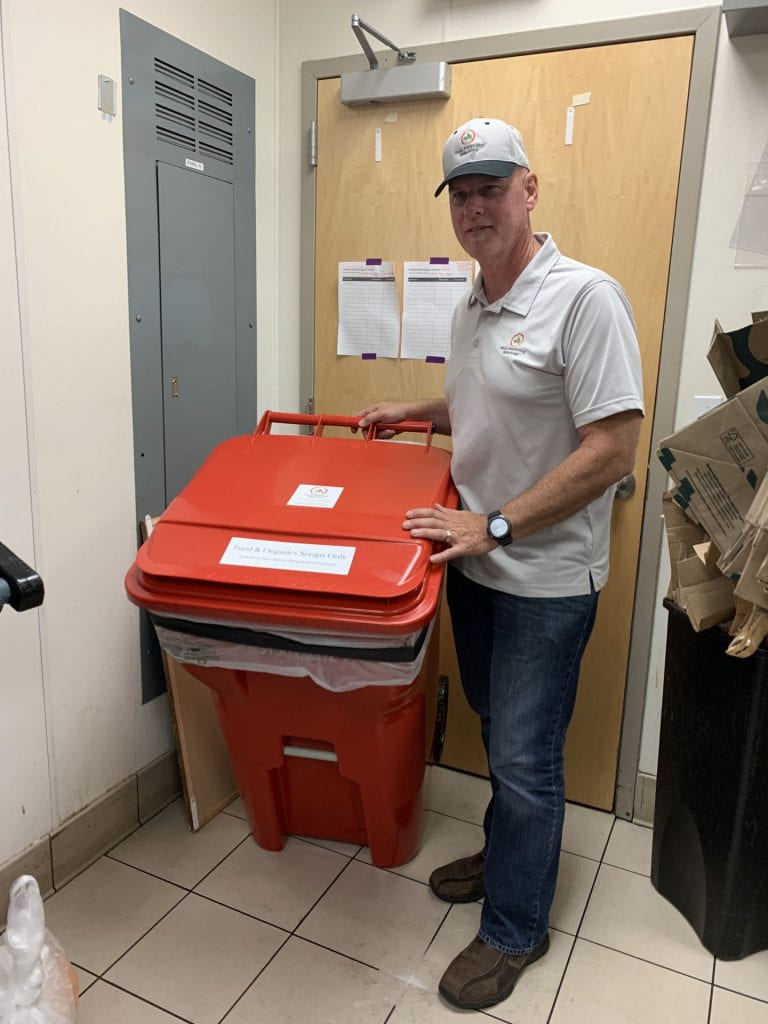
Northwest Arkansas residents and businesses waste 80,000 tons of food each year. A company called Food Loops is working to lower that.
With a population of 563,400 and growing 32 people a day, Northwest Arkansas is growing faster than 96 of the nation’s 100 largest Metropolitan Statistical Areas, according to the Northwest Arkansas Council.
The more than half-million people who live here contribute to the mass of food waste. To counter that problem, Food Loops has developed composting programs and compostable products for restaurants and residents, said Micheal Kraus, Food Loops co-founder. Food Loops is operating to reduce the 80,000 tons of food waste in half in the next five years, Kraus said.
“Right now, we are about 2% of the way to our goal,” Kraus said.
In the last three months, Food Loops has gained momentum, Kraus said. Food Loops workers bought a new truck that picks up waste and allows them to work with more clients. They are growing quickly, he said.
Food Loops operates at 40 restaurants, one hospital and attends many events where workers try to divert all of the waste from the landfill, leaving no waste at all, Kraus said.
Each week, Food Loops picks up 10 tons, said Richard Ims, Food Recycling Solutions founder, a partner with Food Loops.
“I formed the company because Food Loops out grew their ability to collect all of the food waste because it’s a grassroots effort,” Ims said. “We got a strong guy lifting up these 32 gallon barrels on the back of a pickup truck, which is great, but when you talk about larger and larger volumes, it’s not very scalable.”
The mission of Food Loops is to meet people where they are and help them live more sustainably, Kraus said. Food Loops workers achieve this by making their products affordable for residents at $10 a month to subscribe in a bucket swap program.
“We give them an empty five-gallon bucket, they fill it up and they can come give us the full one and we swap it out for another clean one,” Kraus said.
Participants fill the buckets with food waste, then Food Loops workers take the waste and create compost. They then sell the organic products to farmers, landscapers and residents, according to the Food Loops website.
“Our facilities in Rogers is where we grind up the food waste,” Kraus said. “And the city of Fayetteville composts, so we bring it here, they do the composting for us. We don’t have our own facility yet, we will, but we have our own grinding sites where we grind up everything.”
Food Loops hopes to reduce the amount of waste in NWA and reduce the amount of waste that goes into the landfill by 50%, Ims said.
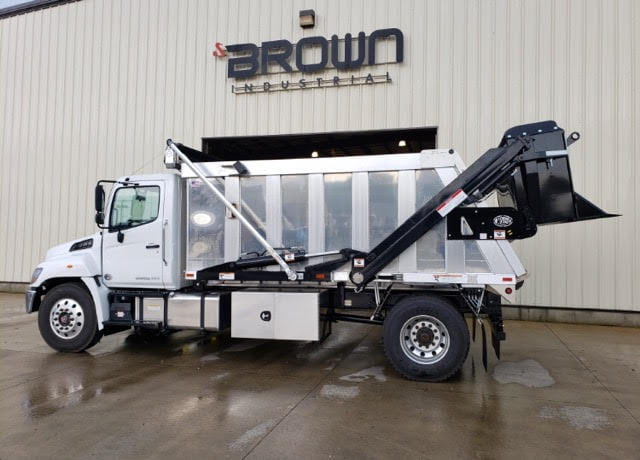
“You have to shoot for that goal and you have to start somewhere and you have to incrementally move to that goal,” Ims said.
Ims thinks that by raising awareness to the waste problem and offering Food Loops as a solution, that will help people become part of the effort to reduce waste from going into the landfill, he said.
Food Loops workers do not want the landfill to continue to grow because once waste is in the landfill, it will be there forever, Kraus said.
“That landfill is going to be sealed up with a big tarp someday and it’s going to be covered with a bunch of soil and it will live there forever,” Kraus said.
American businesses, consumers and farms spend $218 billion a year growing, processing, transporting and disposing food that is never eaten, according to ReFED. That adds up to 52 million tons of food annually going into the landfill. Food waste takes up about 21% of landfill volume and homes and consumer-facing businesses create most of the waste.
“That’s a huge problem,” Kraus said. “It’s a huge problem locally, it’s a huge globally.”
Food Loops is trying to combat the increasing number of landfills, but runs into a problem when consumers add plastics and other non-compostable products to their waste buckets, Kraus said. The company calls these products unwanted foreign objects, or UFOs.
“We were getting lots of plastic forks or solo cups or plates that aren’t compostable in our mix,” Kraus said. “And so we decided after a visit here, to the U of A, to the cafeterias, that what we’re going to do is start selling compostable products as a solution.”
The compostable products that Food Loops offers includes cups, lids, straws, plates, bowls, cutlery, liners, bags and take out containers, according to the Food Loops website.
“They’re made out of plants, starches, corn and they hold up very, very nicely,” Ims said. “Some of the cold cups actually look like plastic, most people couldn’t tell the difference other than the fact that it’s marked that it’s compostable.”
The reason that plastics are widely used is because they are cheaper than compostable products, Ims said. Overtime, the prices have started to drop, but they are still more than plastics.
For example, 1,000 12-ounce clear cups from Food Loops cost $199.93, according to the website. And 1,000 12-ounce plastic cups from Amazon.com cost $42.79, according to Amazon.
Food Loops has continued to reduce waste from the landfill since 2017, when the company was founded, Kraus said. “And you know, our goal, our vision hasn’t changed since then. We are still trying to divert food waste from the landfill,” he said.
Food Loops works with sustainably minded people and even people who do not know how to be sustainable, Kraus said.
“We can meet the people who are not even on the radar of sustainability and help them take steps towards living a more sustainable life,” Kraus said. “And that’s our goal, no matter who you are, we can help.”

